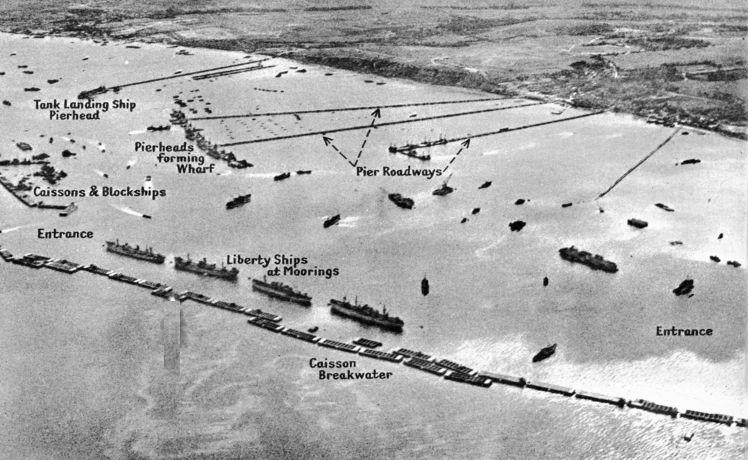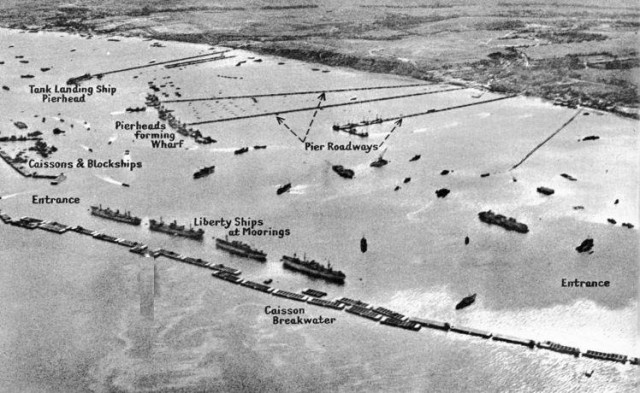The Normandy landings were a treacherous time in the Second World War, with an incredible number of men storming the beaches of France and risking their lives to advance their position in the war. They were also advancing their technology for the sake of bettering their chances of victory. Many associate the First World War with innovation, but the inventive spirit was still very much alive during the Normandy landings.
Some of the most well-known inventions of D-Day revolved around the initial act of getting troops onto the beach. This effort was greatly aided by the landing craft produced by Andrew Jackson Higgins. His company in New Orleans manufactured mass numbers of “Higgins boats” leading up to the Normandy landings and they are now a symbol of D-Day. The British had their own invention for this purpose, the Mulberry harbors. These helped for the mass transit of numerous military vehicles as well as heavy equipment. These large structures, with the assistance of floating bridges, gave drivers a straightaway path onto the beach, the Imperial War Museums reports.
While the Allies were making their way onto the beach, the Germans were busy trying to defend themselves against the assault. They utilized a number of defense mechanisms to this end. For instance, those familiar with the Normandy landings have no doubt seen images of the beach littered with so-called hedgehogs, structures which looked like large jackstones that were meant to keep landing craft from making it too far onto the beach without risk of damage.
The battle was not fought entirely on land and sea. There was also a great population of aircraft present at D-Day, including the gliders which brought many troopers from air to land. They did not have spectacular flight capabilities, as the name implies, but their importance during the Normandy landings is generally unquestioned. Larger aircraft would tow them along before they would detach and glide down to the beaches. Once there, they could unload soldiers as well as equipment and supplies necessary to maintaining the assault.
The Normandy landings were a tragic event for many involved. Even those who lived faced survivor guilt and PTSD. Still, they could not deny that they were a part of something much greater than themselves, a day which would become known as one of the most harrowing events of WWII. The Normandy landings were important not only for the bravery they inspired, but the innovation to military tactics as well.

